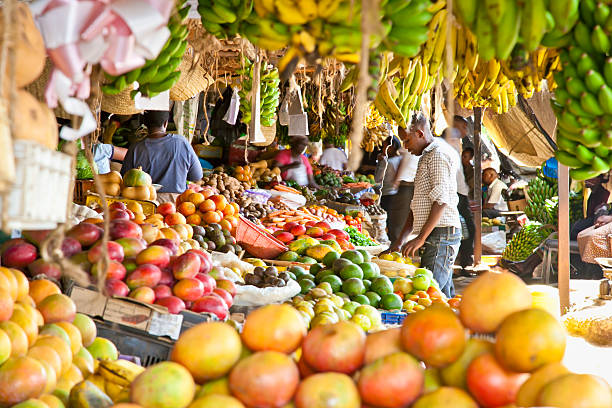Nigeria’s headline inflation rate in September 2024 climbed to 32.70%, a slight increase from 32.15% recorded in August 2024. This marks a 0.55% rise on a month-on-month basis, according to the latest Consumer Price Index (CPI) report from the National Bureau of Statistics (NBS). The report attributes the inflationary pressures primarily to rising transportation costs and increasing food prices.
Year-on-Year Comparison
On a year-on-year basis, the inflation rate surged by 5.98 percentage points compared to the 26.72% recorded in September 2023. This significant jump underscores the growing inflationary trends witnessed over the past year.
Month-on-Month Inflation
In terms of monthly changes, the headline inflation rate was 2.52% in September 2024, reflecting a 0.30% increase from the 2.22% recorded in August 2024. This indicates that the average price level rose at a faster pace in September than in the previous month.
Food Inflation
Food prices remain one of the major drivers of inflation in Nigeria. The food inflation rate for September 2024 stood at 37.77% on a year-on-year basis, up by 7.13 percentage points from the 30.64% recorded in September 2023.
Month-on-Month Food Inflation
Month-on-month, food inflation rose by 2.64% in September 2024, a 0.27% increase compared to 2.37% in August 2024. Key contributors to the rise in food prices include items such as beer (both local and foreign), various cooking oils (vegetable oil, groundnut oil, and palm oil), as well as meats like beef, gizzard, and dried beef. Additionally, beverages like Lipton, Milo, and Bournvita also saw price hikes.
Annual Average Food Inflation
For the twelve-month period ending in September 2024, the average food inflation rate was 37.53%, a substantial increase of 11.88 percentage points from 25.65% in the same period of 2023.
Core Inflation
Core inflation, which excludes volatile items such as agricultural products and energy prices, hit 27.43% year-on-year in September 2024, up by 5.59 percentage points from 21.84% in September 2023.
Key Drivers of Core Inflation
Items contributing to the rise in core inflation include rent (actual and imputed rentals for housing), intercity bus journeys, taxi fares, and meals at local restaurants.
Month-on-Month Core Inflation
On a month-on-month basis, core inflation declined slightly to 2.10% in September 2024, down by 0.17% from the 2.27% recorded in August 2024.
Urban Inflation
Urban inflation continued its upward trend, reaching 2.67% in September 2024, compared to 2.39% in August 2024. The rise reflects the pressures from urban cost drivers, including transportation and housing.
Rural Inflation
In rural areas, the inflation rate was 2.39% in September 2024, an increase of 0.33 percentage points from 2.06% recorded in August 2024. This increase is largely attributed to rising food and transportation costs in rural regions.
Impact of Petrol Price Hikes
The surge in inflation comes on the back of petrol price increases by the Nigerian National Petroleum Corporation Limited (NNPCL), which began in early September. These fuel price hikes have had a cascading effect on transportation costs, further exacerbating the inflationary pressures in both urban and rural areas.
Source: NairaMetrics


















